![]()
REMARKS BY
HIS MAJESTY KING ABDULLAH II
PLENARY SESSION OF THE 68TH GENERAL ASSEMBLY
THE UNITED NATIONS, NEW YORK
24 SEPTEMBER 2013
Bismillah ar-Rahman ar-Rahim
Mr. President,
Mr. Secretary General,
Distinguished Heads of Delegation,
Members of the General Assembly:
It is an honour to join you today. President Ashe, congratulations on your election. Mr. Secretary General, sincerest thanks for your always invaluable work.
My Friends,
Global security will long be shaped by what is happening right now in the Middle East. Our region can be, must be, a House of Peace and Prosperity: With strong pillars of good governance, and wide-open doors to opportunity, especially for our young people. This is Jordan’s blueprint, and we are not alone.
But no house can be built when its city is burning. And today, the region’s fires cannot be ignored. All the world is in their path. To protect the future, our world must respond.
The Syrian crisis is a global humanitarian and security disaster. Escalating violence threatens to hollow-out the rest of that country’s economic and political future. Extremists have rushed to promote and exploit ethnic and religious divisions. Such a dynamic could crash reg’ional renaissance and put global security at risk. We have a duty to reject these destructive forces.
Last month, Jordan hosted more than one hundred eminent Muslim scholars from around the world. Their work affirms the true teachings of Islam, and builds on Jordan’s long-standing, inter-faith and intra-religious initiatives: The Amman Message, A Common Word, and World Interfaith Harmony Week.
The scholars said that there is no single prescribed model for an Islamic state. But they affirmed that the modem Islamic state should be a civic state, founded on institutions, and with an inclusive constitution based on the rule of law, justice, and freedom of opinion and faith. The modem Islamic state should uphold equality, across the ethnic and religious spectrum. The scholars decisively condemned the incitement of ethnic and sectarian conflict (Fitna). They recognised this evil for what it is: A threat to the Muslim World (Ummah), and indeed, all humanity.
Jordan has called upon the Organisation of Islamic Cooperation to adopt these recommendations, which are critical guiding principles amid the turbulence and transformations across our region.
This month we in Jordan also convened an international meeting to address challenges to Arab Christian communities. They are an essential part of our region’s past, present and future.Jordan has been an historic model of coexistence and fraternity between Muslims and Christians. We will continue to do our utmost to protect our Arab Christian communities and minorities. And we call on all countries to join us in our stand for diversity, tolerance and mutual respect.
The truth is, respect for each other is the way forward for all of us. The historic transformation going on in my region today won’t be achieved by formulas; it will come when all our citizens feel truly represented. Jordan seeks a House of the Future that includes all. We are building our future on the solid foundation of majority consensus, minority rights, a democratic culture of active citizenship, and peaceful, evolutionary change.
My Friends,
The Syrian people must also have a future… and for that, the international community must act. It is time to fast-track a political transition in Syria: to end the violence and bloodshed, neutralise the threat of chemical weapons, restore security and stability, preserve the unity of Syria and its territorial integrity, and engage all, all, its people in building their country’s future.
Syria’s future will depend on the Syrian people. But the world has the duty, the interest, and the power to help.And help must be soon.The damage and dangers are mounting. The flow of Syrian refugees in Jordan already equals one-tenth of our own population.It could reach one million, some 20% of our population, by next year. These are not just numbers; they are people, who need food, water, shelter, sanitation, electricity, health care, and more. Not even the strongest global economies could absorb this demand on infrastructure and resources, let alone a small economy and the fourth water-poorest country in the world.
My Friends,
Jordanians have opened their arms. to those in need, as we have always done. But I say here and now that my people cannot be asked to shoulder the burden of what is a regional and global challenge.
Let me acknowledge, with gratitude, the generous response to date by the U.N. and regional and international donors. But we can all see the reality on the ground: the need is out-racing the response. More support is urgently needed to send a strong signal that the world community stands shoulder-to-shoulder with those who have borne so much. Those who are suffering in Syria also need the world to be resolute: the Syrian parties must abide by international humanitarian law and principles, and allow humanitarian access, into and within Syria, to reach those in need.
Our international community must also work together for a speedy resolution of the region’s core crisis. The Palestinian-Israeli conflict consumes resources that are needed to build a better future, and feeds the flames of extremism around the world. It is time to put this fire out.
The talks that began in July show that progress can be made, with willing parties, determined U.S. leadership, and strong regional and international backing. We commend the President of Palestine and the Prime Minister of Israel for the bold decision to resume final status negotiations. We urge them to stay committed to reaching an agreement within the set time frame. Let there be no actions that can derail what is still a fragile process. This means no continued settlement construction, and no unilateral actions that threaten the status quo in East Jerusalem and its Muslim and Christian holy sites. Such threats would be a flashpoint for global concern.
We know the right way forward. And the goal can be reached: a just and final two-state settlement, based on international legitimacy and the Arab Peace Initiative. For Israel: Real security, and normal relations with 57 Arab and Muslim countries. For the Palestinian people, at long last, the rights they deserve, in a viable and independent Palestinian State, on Palestinian national soil, based on the 1967 lines, and with East Jerusalem as its capital.
Let us keep the focus on what we are building: Communities safe for families to lead normal lives; a Middle East of many Houses, working together in region-wide cooperation — the ultimate security for our future.
My Friends,
The future is ours to build, not in the Middle East alone, but in global partnership. Those who are working to do the right thing need the whole world’s support. With every country that is more prosperous and free, with every neighborhood that is safer, with every person who has more reason to hope: The entire House of Humanity grows more secure. Let this be our promise, not only for future generations, but for those we serve today.
Thank you.



 RSS
RSS

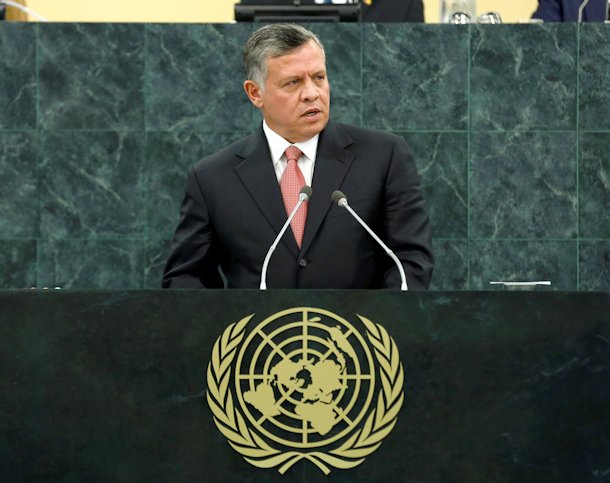
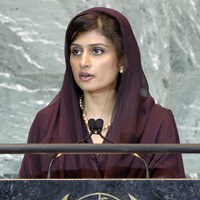

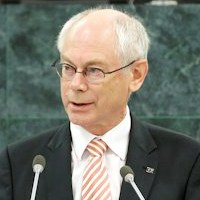
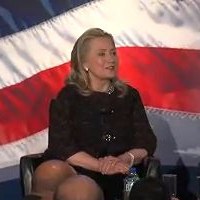
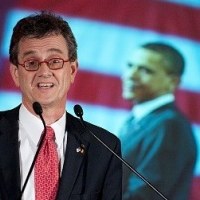




Latest Comments
Hello Mike, Thank you for your positive feedback to the article. I felt there wasn’t too much critical analysis of ...
Thanks for this considered and well constructed article. A follow up article on the manner in which the editorial contro...
THE CLUELESSNESS OF CLAIMING THAT OBAMA'S MIDDLE EAST POLICIES WERE A FAILURE CANNOT BE FURTHER FROM THE TRUTH, WHAT THE...
As long as Obama is the president of the usa do not trust the us government......
Thank you for an good read....